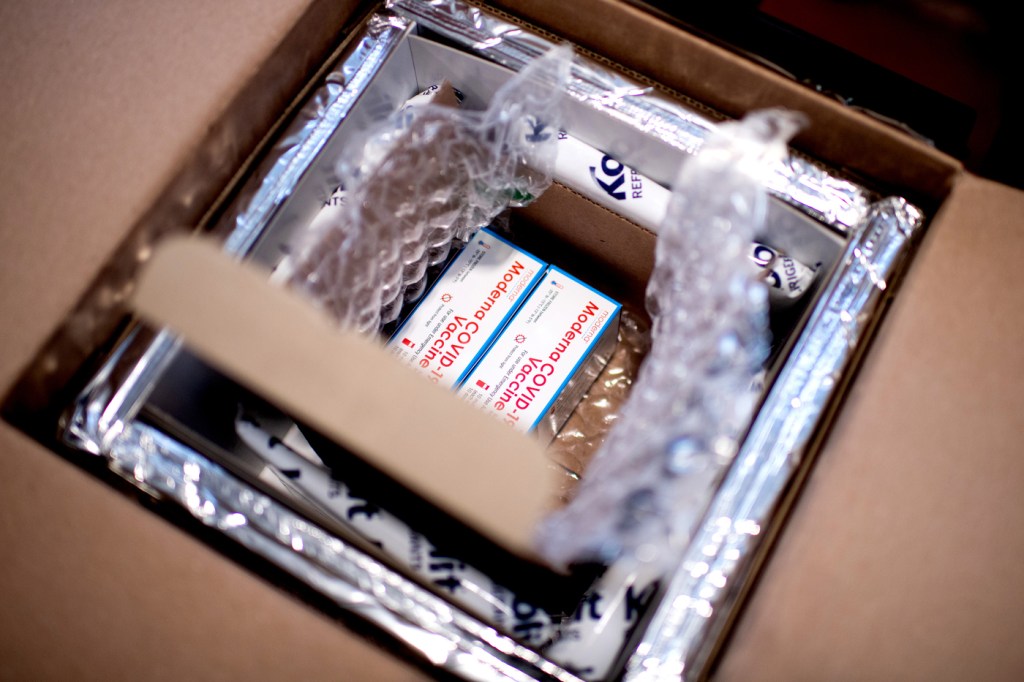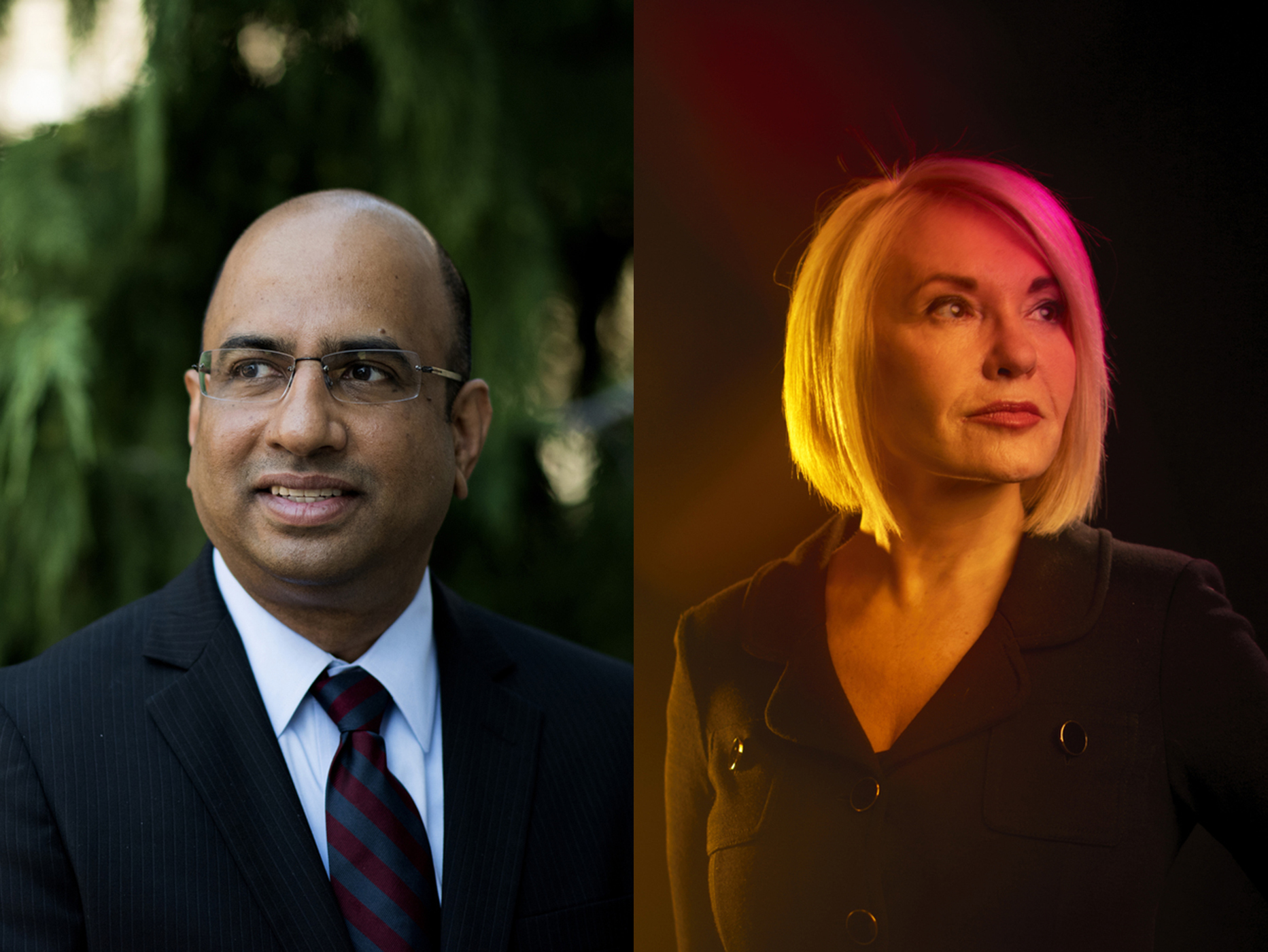How Starbucks could speed up the vaccine rollout

In need of a pick-me-up for its struggling COVID-19 vaccine rollout, Washington state has turned to a familiar resident: Starbucks.
The Seattle-based coffee company will provide “operational efficiency, scalable modeling and human-centered design expertise and support,” Washington Governor Jay Inslee announced this week.
Starbucks, which serves 100 million customers per week from 33,000 stores, is an example of how the supply-chain expertise of businesses can help rescue U.S. vaccination efforts, says Nada Sanders, distinguished professor of supply chain management at Northeastern.

Raj Echambadi (left), Dunton Family Dean of the D’Amore-McKim School of Business, and Nada Sanders, distinguished professor of supply chain management, say that Starbucks and other supply chain businesses can help distribute vaccines. Photos by Matthew Modoono/Northeastern University (left) and Adam Glanzman/Northeastern University.
“Starbucks is an excellent example of a business that understands operational efficiency, and can apply that expertise to the setting of vaccine distribution,” Sanders says.
The partnership with Starbucks is a promising sign that government leaders are learning how to break the vaccination rollout down to its core elements, says Sanders. UPS and FedEx have already been helping to deliver vaccines to communities throughout the U.S. Once the supplies arrive, however, physicians can’t be expected to develop the operational procedures to administer shots—not without a deeply-organized plan that is focused on treating large numbers of people as quickly as possible.
“We keep hearing physicians being asked about distribution and the vaccine rollout—Stop!” says Sanders. “I don’t go to a physician for a supply chain problem, in the same way that I am not qualified to give medical advice. Let the physicians do what they do, but understand that they don’t have a clue about supply chains.”
Starbucks, on the other hand, understands supply chains.
“They have their entire process, even at the barista station, analyzed down to the second,” says Sanders, who recalls an interview given years ago by Howard Schultz, the former chairman and chief executive officer of Starbucks. Schultz was originally drawn into the business by the romance of the cafe culture and the aura of the Starbucks brand.
“But then, he said, he found that the business came down to operating efficiency, and moving people, and timing the inventories down to the second,” Sanders says. “Those things aren’t romantic. But Starbucks was able to implement a system that was extremely well-orchestrated, and that’s what they’re bringing to the table during the vaccine rollout.”
Starbucks will help Washington triple its current rate of vaccinations—the goal is to provide 45,000 shots per day—by discovering problems in the supply chain. The coffee company will devise solutions in its Seattle innovation lab, which is normally used for planning changes to its menus and store designs.
“When you go to Starbucks, they exactly have what you want,” says Raj Echambadi, Dunton Family Dean of the D’Amore-McKim School of Business. “They have designed the store well, so that you’re not waiting for too long. Your product comes exactly at the right time and in the right formulation, the right temperature. Operationally, they are extraordinarily efficient because they can’t [afford to] have bottlenecks—and that’s basically what Washington state is looking for.”
Bottlenecks that impede the flow of patients at vaccination sites have emerged as a problem nationally. Such slowdowns threaten plans by President Joe Biden to ramp up vaccination efforts in the first 100 days of his administration.
“It is a massive, massive challenge to increase the volume—that’s where bottlenecks start to emerge,” Sanders says. “They snowball, and things get all clogged up in the pipeline. Starbucks knows how to manage this really well. If other states can engage businesses that are really good at this, it would be fantastic.”
The opportunity to help resolve the COVID-19 pandemic provides businesses like Starbucks with good exposure, Sanders says. Biden is seeking to utilize the Defense Protection Act to encourage companies to participate in vaccination efforts.
“At a time when companies are really struggling, it’s an opportunity to solidify their position in the marketplace,” Sanders says. “Yes, it’s philanthropic, it’s a good deed. But it also makes excellent business sense.
“We have a massive disconnect with demand for vaccines far outstripping supply. My recommendation would be for states to do this across the board wherever possible—to get businesses involved that are really good at what they do.”
For media inquiries, please contact Jessica Hair at j.hair@northeastern.edu or 617-373-5718.






